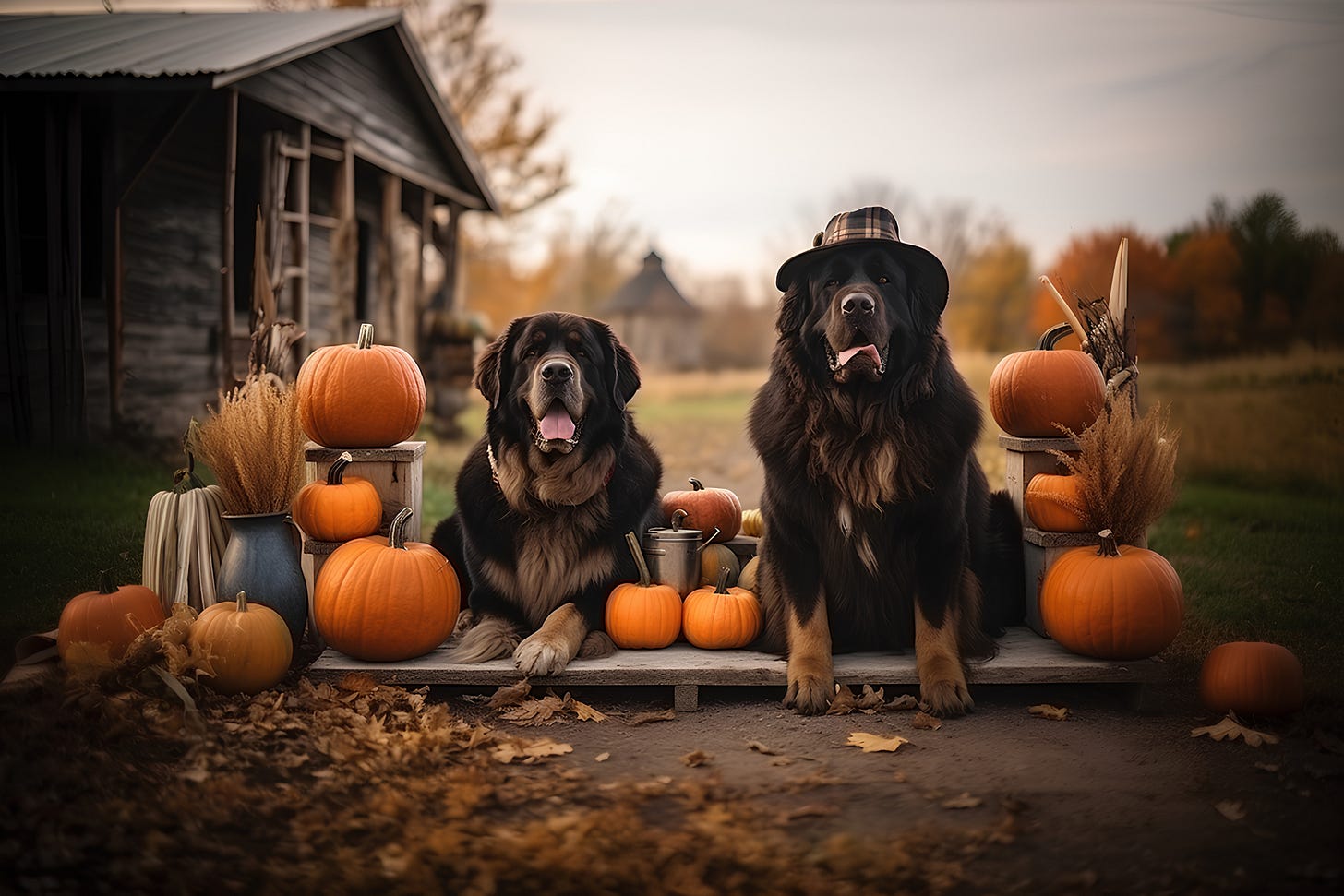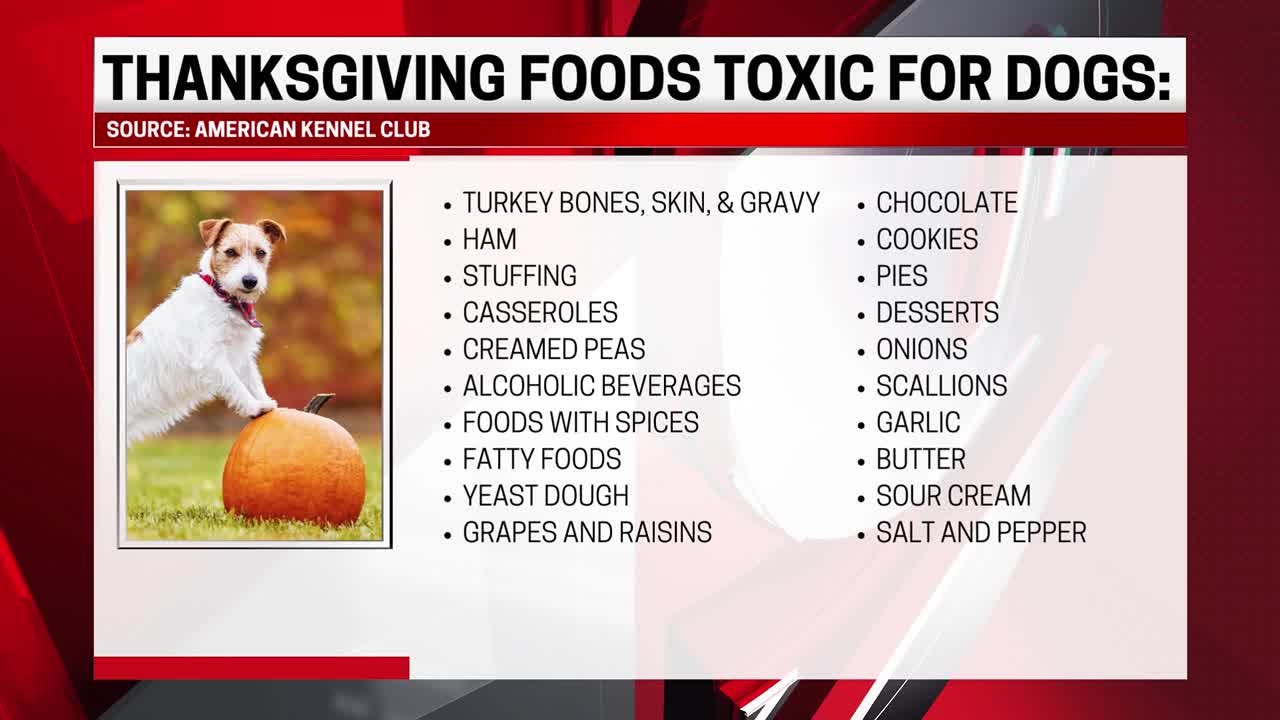Thanksgiving Dog Safety
A Wee Chart That Shows What Dogs Can and Can't Eat
Just a very quick post to thank you all so much for subscribing to PolitiSage and the immense, kind and joyful support you’ve given us. As most of us in the US head off for Thanksgiving Dinner, we wanted to give you a quick reminder of what dogs can and can’t eat so that the selections you make from a feast table don’t wind up making them sick—a little bit sick or a lot sick. Here’s the list from the American Kennel Club.
Just Completely Avoid Nuts If You’re Not Sure.
Here’s a sage missive from PreventiveVet.com
Avoid:
Macadamia nuts – Very toxic to dogs. Can cause weakness, inability to walk, vomiting, tremors, and hyperthermia in dogs. Symptoms usually begin within 12 hours of ingestion.
Black walnuts – Very toxic to dogs. Can cause vomiting and neurologic symptoms.
Note: English Walnuts are the most common ones used for baking and cooking. They are the safest of the walnuts and not toxic to your dog. However, they can mold like other walnuts, which can make pets sick. Even though they are not toxic, they are very high in fat, and because they are larger, they are harder for pets to digest, especially if they don’t chew them.Old and moldy walnuts – Very toxic to dogs and cats. Can cause tremors and seizures.
Raw Cashews – Should be avoided for dogs and toxic for cats. Raw nuts contain compounds that make them harder to digest than roasted/cooked nuts which can increase the likelihood of stomach upset. They can cause toxic-like effects in some cats (causes unknown).
Pistachios – Should be avoided for dogs and cats. Pistachios are high in fats (which can cause pancreatitis and stomach upset. Due to their size and the fact they often have a shell, they are a choking hazard, hard to digest, and can cause intestinal blockages (especially in small dogs and cats). They can also grow a mold that can damage the liver of dogs They are often seasoned with salt, onion, and garlic (with the last two ingredients being toxic to pets).
Hickory nuts – Should be avoided for dogs and cats. Due to their large size and shells, they often cause intestinal blockages and can be a choking hazard, especially to cats and small dogs. Moldy ones contain tremorgenic mycotoxins, which can cause seizures or neurological symptoms.
Pecans – They are not directly toxic, but like walnuts, they tend to mold. These are various microorganisms, including toxigenic and pathogenic fungal species, that can't be easily seen by the naked eye. These molds, even a small amount, can cause seizures and nerve damage. They also can cause gastrointestinal distress and blockage.
Almonds – While not directly toxic, it is recommended that they not be given to pets since they are a significant obstruction hazard (they are hard for pets to break down, and pets don’t always chew their food well). For small breed dogs, they may inhale them into their windpipe. They can potentially cause severe gastrointestinal upset due to their high-fat content as well as pancreatitis. They are often heavily salted, which can cause water retention. For pets with heart disease, this can be dangerous. Almonds are also prone to mold like pecans and walnuts.
Brazil nuts – They are not toxic, but they are hard to digest and are high in fat (one of the fattiest). This can be especially problematic for dogs with hyperlipidemia (high amount of fat in the blood) and those pets that have a history of pancreatitis.
So, dear friends, Happy Thanksgiving. Keep Fido safe.
All love, all light …



